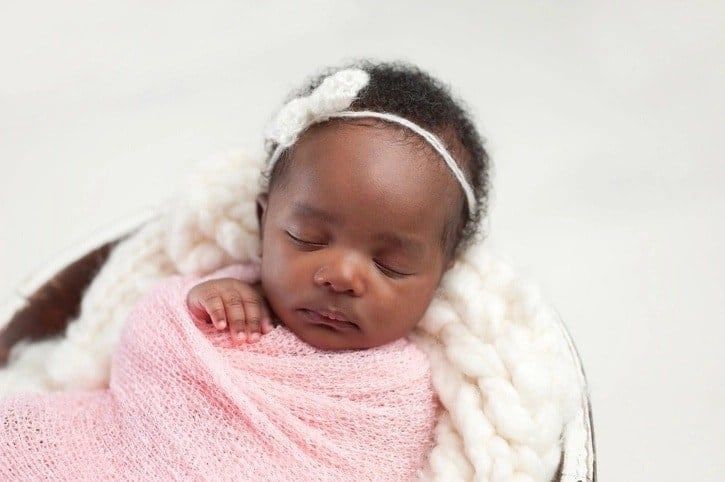Lifestyle
Court Rules Both Parents Must Agree On Child’s Name Together, Not One Parent’s Decision
Justice Chemitei observed that excluding one parent from the naming process could have psychological consequences for the child, either immediately or later in life.

Landmark ruling emphasizes joint parental responsibility in naming children, citing cultural norms and psychological implications
NAIROBI, Kenya – A Kenyan High Court has issued a precedent-setting ruling that both parents must jointly agree on their child’s name, with neither parent having the unilateral right to make this decision without the other’s consent.
Justice Hillary Chemitei delivered the landmark judgment in a case involving a couple identified as CKM and SW, who married in December 2012 and have five children together.
The dispute arose when the mother registered their youngest daughter’s birth in April 2024 with names the father had not agreed to, prompting him to seek legal redress.
The Legal Dispute
The father, CKM, moved to court in August 2024, arguing that his wife had infringed upon his parental rights by choosing names without his involvement.
SW had selected a feminine name of Japanese origin combined with two Kikuyu names for their daughter.
In contrast, the father preferred a French feminine name, a saint’s name, and a third name honoring his father – consistent with the naming tradition established for their other children.
“The father bore all medical costs related to the child’s birth and feared the birth certificate would be issued without acknowledging his father’s name, breaking family tradition,” court documents revealed.
The Ruling and Its Implications
Justice Chemitei ruled decisively in favor of the father, establishing that both parents share equal rights and duties in naming their child.
“The issue of names and naming is a right generally bestowed upon the parents,” the judge stated. “It is a right which cannot be derogated or transferred to any third party unless otherwise shown.”
The court emphasized that while the mother is the biological parent, this does not grant her exclusive authority over naming decisions.
Justice Chemitei observed that excluding one parent from the naming process could have psychological consequences for the child, either immediately or later in life.
Cultural and Social Context
The ruling drew heavily on African cultural norms to support its decision. Citing African cultural norms, the judge noted that unless shown to be repugnant, naming is traditionally a joint parental responsibility and should be respected.
The precedent-setting decision emphasized the importance of collaboration in the naming of children, especially with modern parenting dynamics, inter-racial unions, and the rise of single-parent households.
Court Orders and Implementation
Justice Chemitei ordered the couple to reach an agreement on their child’s name within 30 days. Should they fail to do so, the father would have the final decision-making authority.
The Registrar of Births and Deaths was directed to implement whatever outcome the parents reached or, failing that, the father’s choice.
The father had sought a court order directing the Registrar of Births and Deaths to remove the names given by his wife and replace them with names agreed upon by both parents.
Broader Legal Implications
The High Court ruling has sparked debate among Kenyans over parental rights, responsibilities, and cultural norms.
The decision establishes important legal precedent for similar cases involving parental disagreements over fundamental child-rearing decisions.
The ruling reinforces the principle that parental rights and responsibilities are shared equally between both parents, regardless of which parent has primary physical custody or bore the child. It also underscores the court’s recognition of cultural traditions and their importance in family decision-making processes.
Modern Parenting Challenges
The case highlights the complexities of modern parenting, particularly in situations involving:
- Inter-racial or inter-cultural marriages where different naming traditions may conflict
- Situations where parents have different religious or cultural backgrounds
- The need for legal clarity on shared parental responsibilities
The judgment serves as a reminder that fundamental decisions about a child’s identity, including their name, require mutual consent and collaboration between parents, reflecting the joint nature of parental responsibility under Kenyan law.
This ruling is expected to influence future cases involving parental disputes over child-rearing decisions and reinforces the legal principle that both parents have equal rights and responsibilities in matters concerning their children’s welfare and identity.
Kenya Insights allows guest blogging, if you want to be published on Kenya’s most authoritative and accurate blog, have an expose, news TIPS, story angles, human interest stories, drop us an email on [email protected] or via Telegram
-

 Grapevine2 weeks ago
Grapevine2 weeks agoRussian Man’s Secret Sex Recordings Ignite Fury as Questions Mount Over Consent and Easy Pick-Ups in Nairobi
-

 News7 days ago
News7 days agoTHE FIRM IN THE DOCK: How Kaplan and Stratton Became the Most Scrutinised Law Firm in Kenya
-

 Investigations1 week ago
Investigations1 week agoMulti-Million Dollar Fraud: Three Kenyans Face US Extradition in Massive Cybercrime Conspiracy
-

 Economy1 week ago
Economy1 week agoIran Demands Arrest, Prosecution Of Kenya’s Cup of Joe Director Director Over Sh2.6 Billion Tea Fraud
-

 Business1 week ago
Business1 week agoA Farm in Kenya’s Rift Valley Ignites a National Reckoning With Israeli Investment
-

 Africa1 week ago
Africa1 week agoFBI Investigates Congresswoman Ilhan Omar’s Husband’s Sh3.8 Billion Businesses in Kenya, Somalia and Dubai
-

 Grapevine3 days ago
Grapevine3 days agoA UN Director Based in Nairobi Was Deep in an Intimate Friendship With Epstein — He Even Sent Her a Sex Toy
-

 Politics2 weeks ago
Politics2 weeks agoSifuna, Babu Owino Are Uhuru’s Project, Orengo Is Opportunist, Inconsequential in Kenyan Politics, Miguna Says
















